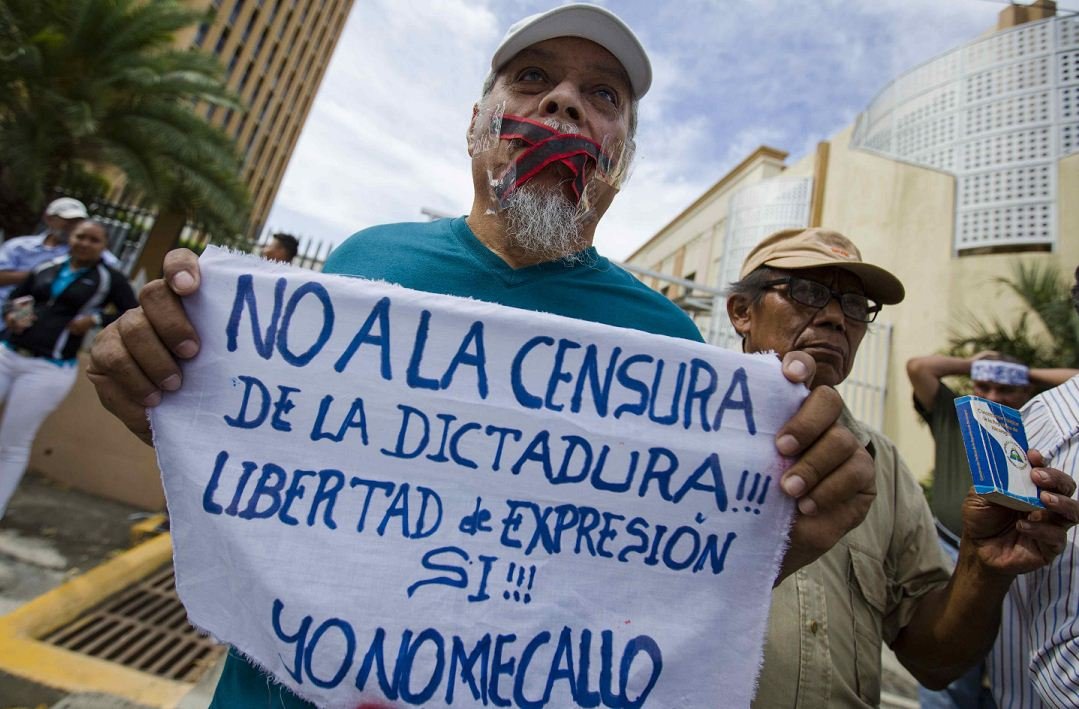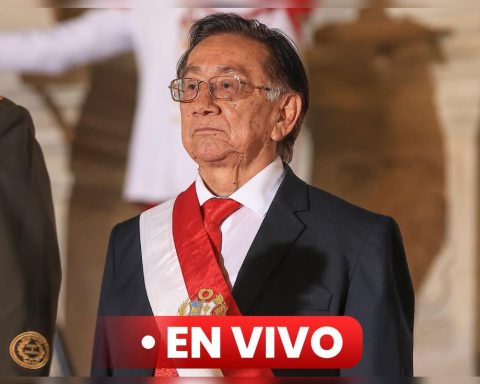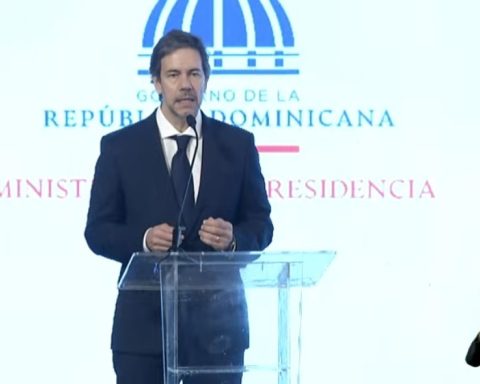This Thursday, the reforms and additions to the Cybercrime Law came into effect, ordered by dictator Daniel Ortega to increase penalties for several crimes, in addition to criminalizing the use of social networks and cell phone applications and adding prison sentences of up to 20 years for anyone the dictatorship wants to accuse of “promoting, sponsoring and encouraging the commission of complex crimes” in the reformed Law.
Law 1219, on reforms and additions to Law 1042 on Cybercrimes, was published in the Official Gazette on September 12, to which the Sandinista deputies and their mosquito allies approved changes to nine articles and added three more.
The amended articles are: 1, 2, 8, 9, 10, 11, 12, 15 and 30 of Law 1042. The changes include new prison sentences.
More years in prison
Among the most visible changes made to the Cybercrime Law is the reform of article 8, referring to “Interference with the computer system or data.” It establishes that “anyone who intentionally and by any means interferes with or alters the operation of a computer system or the data contained therein, temporarily or permanently, will be punished with imprisonment of four to seven years and a fine of three hundred to six hundred days.” Before the changes, the prison sentence was three to five years and fines of 200 to 400 days.
The dictatorship also reformed the penalty for anyone who damages the State’s computer systems, “or those intended for the provision of health, communications, financial, energy, water supply, transportation, ports and airports, citizen security, social security system, education in any of its subsystems, public order and national defense or other services to the public.” In this case, the new prison sentence will be from seven to fifteen years and six hundred to one thousand days of fine. Previously, the prison sentence in this case was from four to six years.
In the case of Article 9, which establishes that “anyone who, by violating the security of a computer system, destroys, alters, duplicates, renders useless or damages the information, data or processes, in terms of their integrity, availability and confidentiality in any of their states of entry, processing, transmission or storage, will be punished with imprisonment of seven to fifteen years and six hundred to one thousand days of fine”, in this case the dictatorship increased the prison sentence severely, since before the reforms the penalty was 4 to 6 years of deprivation of liberty plus 300 to 500 days of fines.
While Article 10, which penalizes anyone who destroys, damages, modifies, executes a program or performs any act that alters the operation or partially or totally disables a computer system that uses Information and Communication Technologies or any of the physical or logical components that comprise it, will be punished with imprisonment of four to seven years and a fine of three hundred to six hundred days. In this case, the previous penalty was three to five years and a fine of three hundred to five hundred days.
Related news: Ortega and Russia create alliance to pursue those who “attack” the State on digital platforms
The reform establishes that if the crime provided for in the previous paragraph was the result of negligence, “it will be punished with a prison sentence of six months to one year and a fine of two hundred to five hundred days.” Before the change in legislation, it was only punishable by a fine.
The amended law now imposes a prison sentence of between 7 and 15 years if the computer damage were to occur against any of the components of a system that uses Information and Communication Technologies (ICT), that is intended for the provision of public or financial services, or that contains personal data, sensitive personal data, reserved public information, technical information or information belonging to natural or legal persons. This crime was previously punishable by a sentence of four to six years and a fine of three hundred to six hundred days.
And by reforming article 10, the cybercrime legislation now establishes that article 10 bis is added, which establishes that the penalties indicated in articles 8, 9 and 10 of this Law will be increased “from fifteen to twenty years of prison for anyone who organizes, finances, sponsors, collaborates and facilitates the commission of these crimes.”
Dictatorship prescribes up to 16 years in prison for “fake news”
In the reforms to the Cybercrime Law, the dictatorship included Article 30, which refers to what the regime calls “propagation and dissemination of false or distorted news,”
Said article of the repressive Law 1042 establishes that “whoever, using Information and Communication Technologies, social networks or mobile applications, publishes or disseminates false, distorted or any other information that deliberately produces alarm, fear, panic or anxiety in the population, or in a group or sector of it, in a person or his family, will be imposed a penalty of three to five years in prison and three hundred to five hundred days of fine. Previously, this penalty was two to four years in prison and three hundred to five hundred days of fine.
But the dictatorship does not stop there, as its intention is to instill the greatest fear in the population, so that it does not exercise its right to think differently. The modifications to the Law also highlight that “if the publication or dissemination of information harms the honor, prestige or reputation of a person or his family, a sentence of two to four years in prison and a fine of one hundred and fifty to three hundred and fifty days will be imposed.”
And the real objective of the regime is to criminalize the exercise of the right to dissent, and for this reason, with the reforms to the Law, it defines that “if the publication or dissemination of information incites discrimination, hatred and violence for racial, religious, political, economic and social reasons or endangers economic and social stability, public order, sovereign security or public health, the penalty will be five to ten years in prison and a fine of five hundred to eight hundred days. Previously, this penalty was three to five years in prison and a fine of five hundred to eight hundred days.
The reformed Law also makes it clear that “the same penalty will be imposed on necessary collaborators, accomplices or any other person who facilitates or favors the commission of this crime,” and with this definition, the dictatorship could wipe out entire families, since it will be enough to accuse them of being accomplices of some opponent.
And to make matters worse, the dictatorship establishes, in the same article 30, third paragraph, that, “this penalty will be increased up to two thirds for persons who organize, finance, carry out, collaborate and/or facilitate the creation or mass dissemination of the aforementioned information.”
The Special Law on Cybercrime was approved in October 2020 as a repressive law to criminalize opponents, independent journalists and media outlets.
In its article 1, said law defines that its purpose is “the prevention, investigation, prosecution and punishment of crimes committed through Information and Communication Technologies, the use of social networks and mobile applications, to the detriment of natural or legal persons, as well as the comprehensive protection of systems that use said technologies, their content and any of their components, in the terms provided for in this Law.”
The deputies also amended article two, which now defines that the repressive regulations are “of public order and will be applied to the material authors, intellectual authors, necessary collaborators, accomplices or any other person who facilitates or favors the commission of the crimes provided for therein.”
The dictatorship also demands recognition of the “Principle of Universality” and establishes that “this Law shall also be applicable to crimes committed within or outside the national territory.”

















